Introspection by top city doctors on social media following landmark gay sex judgment leads to admission of homophobia, need to re-learn
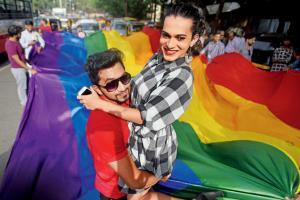
Supporters of the queer community participate in a victory rally in Santacruz on September 6 following the Supreme Court verdict. Pic/Getty Images
A couple of years ago, while on social media Dr Prasad Dandekar stumbled upon a homophobic post. "What shook me was that it came from a very successful, senior doctor from Mumbai, whom I had known for years," says the head of radiation oncology at Girgaum's Sir HN Reliance Foundation Hospital, of the post that claimed the doctor wouldn't allow his kids near homosexuals. Dandekar responded, in the hope of educating his peer that there was nothing unnatural about homosexuality, but that only triggered more venom.
"My initial reaction was 'what a horrible man' and 'how could he say this'. But, I eventually realised that the root of all of this was ignorance," says the 40-year-old, who identifies as gay and lives with his partner in Mumbai.
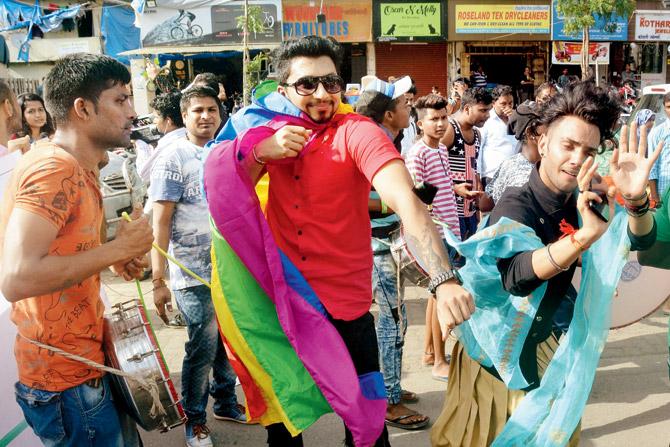
On Thursday, the Supreme Court, in a landmark verdict, shot down Section 377 of the Indian Penal Code that criminalised homosexuality in India
On Thursday, as the Supreme Court decriminalised homosexuality in India, shooting down Section 377 with the now famous words: "What makes life meaningful is love. The right that makes us human is the right to love. To criminalise the expression of that right is profoundly cruel and inhumane." While the law has caught up, the perception within the country's medical community might still be a few steps behind.
Powai-based clinical psychologist Hvovi Bhagwagar admits to raging social media debates on the subject. "There's no denying that medical practitioners have some amount of homophobia, even if it's a minority. Most, of course, would not admit to it. How can you be a doctor and propagate these beliefs? It's like sending an astronaut into space who thinks that the world is square," she says. On Saturday she tweeted: A new law is now needed. Revoking licenses of #mentalhealth professionals doing "#conversiontherapy" ....promising parents they can "convert" their #homosexual child to "normal".
On Friday, a Facebook post by her on LGBTQ rights saw many from the medical fraternity responding, admitting the bias exists and that it needs to be countered at the earliest.
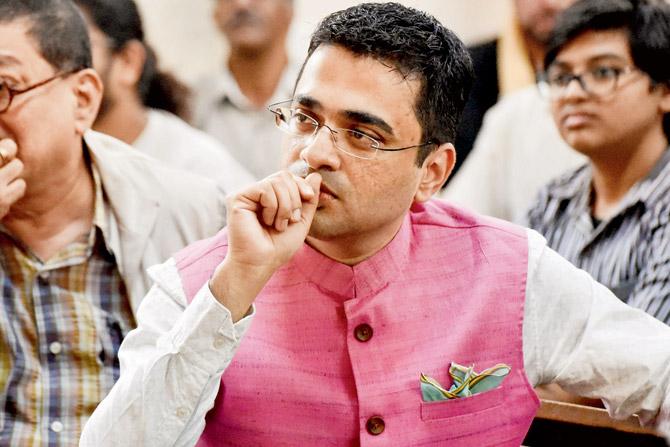
At the Health Professionals for Queer Indians seminars, Dr Prasad Dandekar discusses how and when one should discuss their sexuality with parents and friends
Academic discussion needed
Launched in March this year to sensitise medical professionals in issues faced by the queer community, Dandekar's collective, Health Professionals for Queer Indians, has only had three sessions so far in Mumbai, Delhi and Chennai. During the Mumbai seminar, Dandekar recalls a Pune doctor proudly stating that he had successfully "rehabilitated" homosexuals and that they were now married. "I told him he had ruined lives," he says. But, the ignorance among health professionals, can be put down to the fact that the issue is barely discussed in the curriculum.
"In the MBBS syllabus, there's very little on the subject. We need to talk about this in detail," Dandekar says. Last year, a forensics textbook suggesting that lesbianism was a "perversion" and that only women who were "mental degenerates or nymphomaniacs" were lesbians, shocked the community. The text on page 430 of the second-year MBBS textbook, titled The Essentials of Forensic Medicine and Toxicology was first printed in 1973, reads, Tribadism: Female homosexuality is known as tribadism or lesbianism. According to Greek mythology, women of the Isle of Lesbos practised this perversion. The updated version carries the same paragraph without the subhead of 'Sexual Perversion'.
Yet, Dr Dileep Mhaiskar, Vice-Chancellor of the Maharashtra University of Health Sciences (MUHS), believes the state syllabus is sufficient. "In the existing practice, there is already a general idea of being sensitive towards all genders. After the government's recognition for transgender, special instructions were included regarding sensitisation in treating them," he says.
But Dr Shubhangi Parkar, professor and head of the psychiatry department at Parel's KEM College, says the Maharashtra syllabus doesn't address homosexuality specifically. "Nobody discusses this issue unless a patient brings it up during training of medical students," she says.
The affect on patients
Richa Vashista, clinic and counseling head of The Humsafar Trust, a non-profit that works for LGBTQ rights, says in 2016 the team conducted a Queers Against Quacks programme. "In pretend calls, we contacted doctors saying we are homosexual. 'I don't like that about myself. What should I do?' We had many homophobic and malpractising (sic) doctors saying say, 'Come to our clinic. We will comfort you and give you a process and everything.' In fact, we also had some people post their experiences online," she says. Vashista says they do get some patients who took medication for "treatment" and even got hospitalised. The 27-year-old who studied psychology at SNDT Women's University says, as a student she did not receive training on how to counsel an LGBTQ person. Or, what she needed to understand about the community in general.
"There is literally just one page in an entire book that talks about homosexuality and how it once used to be a disorder and now isn't. That's no justice to someone who is LGBTQ," she says.
Bridging the gap
Dr Avinash De Sousa, member of Indian Psychiatric Society and task force on LGBTQ mental health issues, says what's necessary is already in the curriculum. "It does touch upon gender and sexuality. It's not as if I have dengue or somebody from the queer community has dengue, the treatment will be different. Unless there are specific issues related to LGBTQ problems, it's all the same interpersonal issues that need to be addressed. After all, we are all human beings."
But, there is a gap between the curriculum in India and in the West where there are detailed sections on sexual health, LGBTQ legal and ethical issues and mental health.
Dandekar begins his seminars with a 20-minute film which includes interviews of seven different people from the LGBTQ community discussing the trauma they suffered at the hands of incapable doctors. This is followed by a talk explaining different sexualities such as gay, lesbian, cisgender, etc. The last component is on coming out - the need for it, the right time, how to prepare parents/friends and creating a support system for yourself.
In 2016, Humsafar released a 53-page manual aimed towards sensitising counsellors. Co-authored by Vashista, it featured case interviews with 10 parents who have accepted the sexuality of their LGBTQ children. "[In our curriculum], we should talk about sex, gender and sexuality in detail, and differentiating sex from gender. We need to talk about sexuality and sexual orientation, and the different sexualities that people can experience and feel. We need to focus on mental health concerns that people who are LGBTQ can have because of stigma and discrimination, and how you should sensitively handle that," she says, adding "When LGBTQ people come out to their families, it's mostly the mothers who start blaming themselves. She thinks that it has happened because of her.
So, it is important to talk about family." "We need to teach the medical fraternity how to make the LGBTQ community comfortable, address their mental health needs. We need to prepare doctors now," Parkar says.
Support from IPA
Earlier this year, the Indian Psychiatric Association issued a statement supporting members of the LGBTQ community, addressing the stigma associated with being queer. The statement said, "In the opinion of the Indian Psychiatric Association, homosexuality is not a psychiatric disorder. This is in line with the position of the American Psychiatric Association and the International Classification of Diseases of the World Health Organisation which removed homosexuality from the list of psychiatric disorders in 1973 and 1992 respectively."
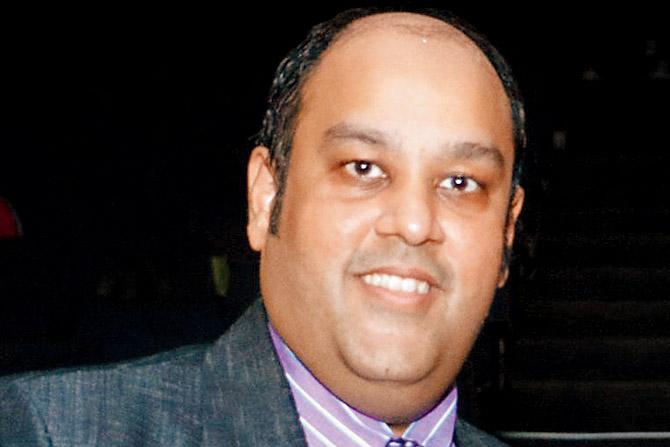
'The syllabus is sufficient. It's not like if a queer person has dengue, the treatment will be different than for a straight person. It's the same with mental health issues'
Avinash De Sousa,
Member of Indian Psychiatric Society
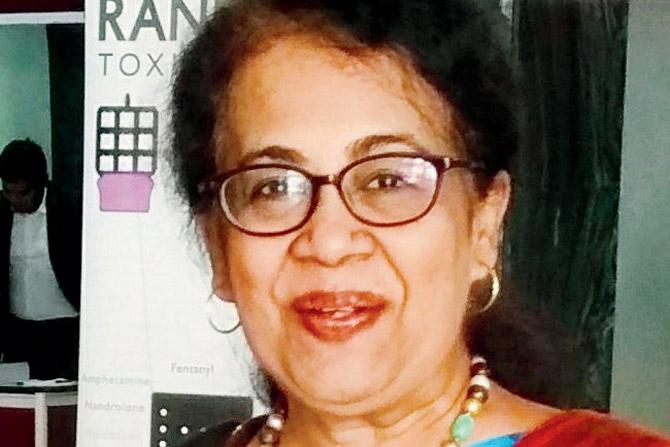
'We need to [teach and learn] how to make them [queer members] comfortable. What we probably need now is to prepare the doctors'
Dr Shubhangi Parkar,
Head, KEM, psychiatry department
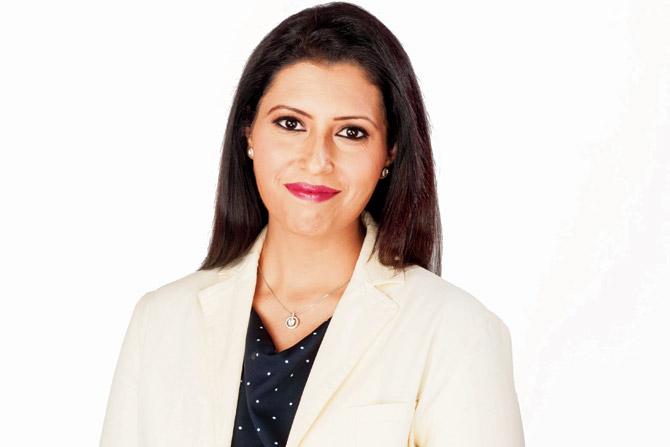
'How can you be a doctor and propagate these [homophobic] beliefs? It's like sending an astronaut, who thinks the world is square, into space'
Hvovi Bhagwagar,
Clinical psychologist
Also Read: LGBTQ Community Delighted With Supreme Court's Decision To Abolish Section 377
Catch up on all the latest Mumbai news, crime news, current affairs, and also a complete guide on Mumbai from food to things to do and events across the city here. Also download the new mid-day Android and iOS apps to get latest updates
 Subscribe today by clicking the link and stay updated with the latest news!" Click here!
Subscribe today by clicking the link and stay updated with the latest news!" Click here!







